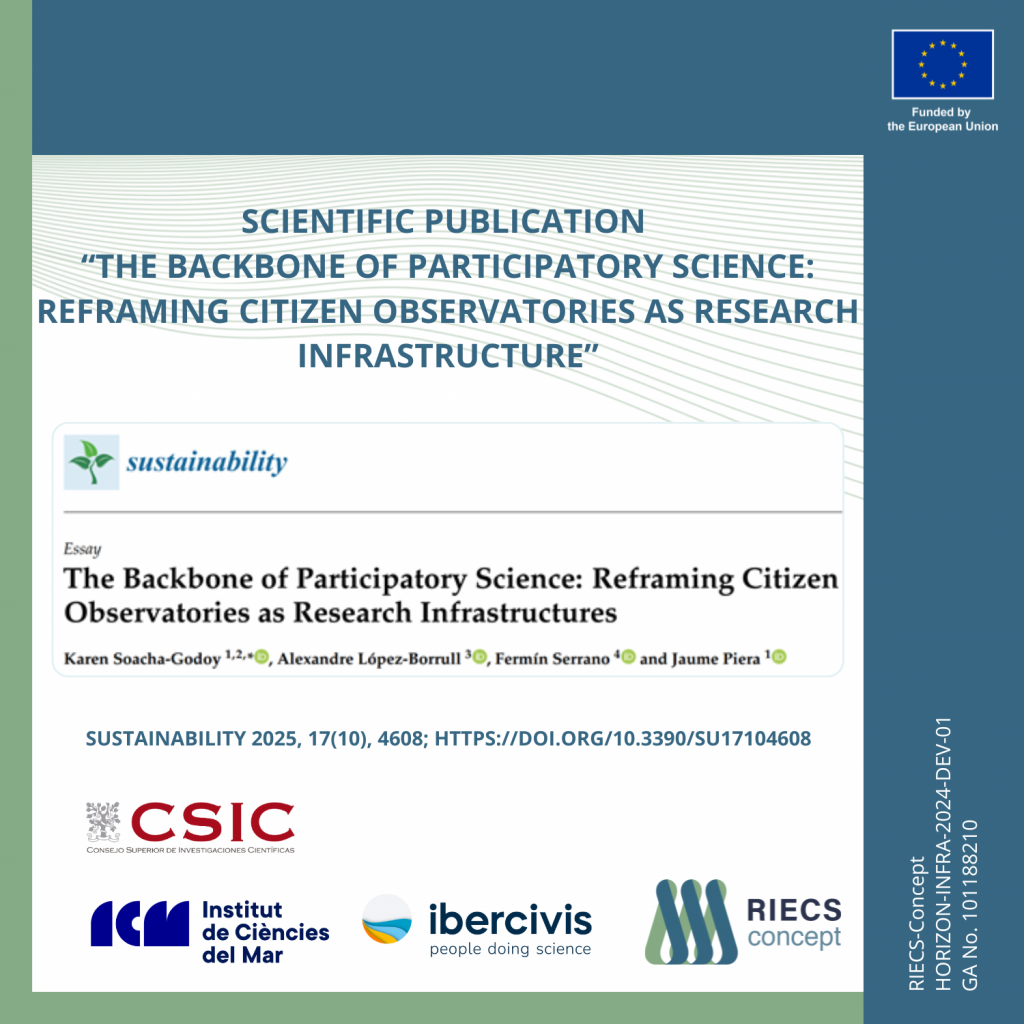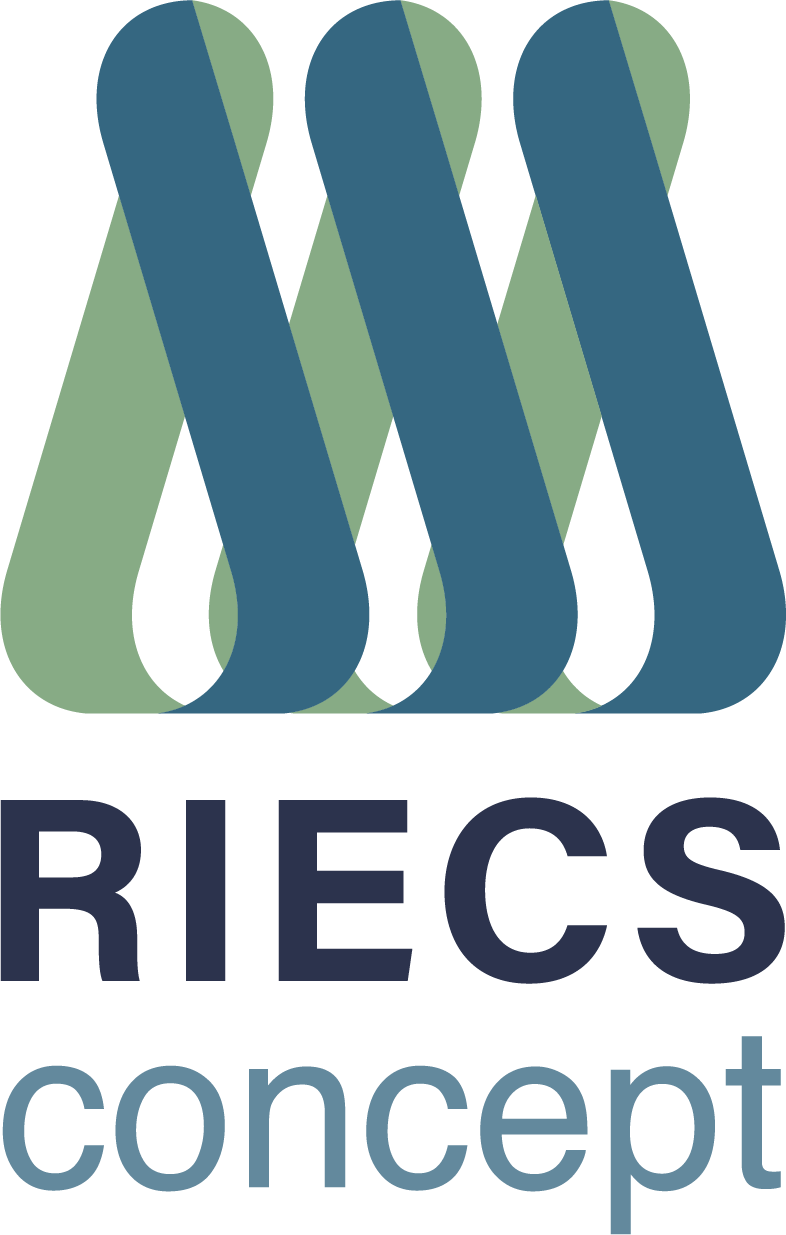
Reframing Citizen Observatories:
The Backbone for Participatory Science

📌 A new study led by researchers from the EMBIMOS group from the Institut de Ciències del Mar (ICM-CSIC) was published in the Sustainability journal. Titled “The Backbone of Participatory Sciences: Reframing Citizen Observatories as Research Infrastructures,” the paper analyses the trajectory of the concept and, based on the research of Citizen Observatories (COs) proposes a set of functions, characteristics and typology to understand them as research infrastructures (RIs).
📌 The research produced within the Horizon Europe RIECS-Concept project was co-authored by Karen Soacha and Jaume Piera (ICM-CSIC, EMBIMOS group), Alexandre López-Borrull (UOC), and Fermín Serrano (Fundación Ibercivis, RIECS-Concept ). It contributes directly to RIECS-Concept’s mission to advance the conceptualisation of infrastructures in citizen science.

Why This Matters
📌 Citizen Observatories empower people worldwide to monitor local environments, collect data, and inform public decisions. However, despite their growing importance, COs have often been undervalued or seen as loosely connected initiatives.
📌 This study challenges that view. It argues that COs already perform the functions of research infrastructures, delivering high-quality data, supporting interdisciplinary collaboration, and mobilising communities. Recognising them as RIs is timely and essential for unlocking sustained funding, strengthening data interoperability, and granting volunteers the recognition they deserve.

What’s New in This Study?
🔘The team reviewed over a decade of evolving definitions of COs (2012–2024) and introduced a three-part framework:
✅Descriptive: COs as socio-technical systems;
✅Instrumental: COs as research infrastructures,
✅Normative: COs as advanced forms of citizen science.
🔘They also propose a checklist of critical functions, ranging from technical tasks like FAIR data collection and quality assurance to social aspects such as ethical governance and community motivation.
Two key operational models are described:
✅Tailored COs: Designed for specific, local research needs.
✅Open COs: Larger, multi-project platforms that enable broader engagement.
🔘Notably, the study recommends networking these models into a “network-of-networks” to prevent data silos and maximize societal value.

What the Experts Say
🔘 “Recognising citizen observatories as research infrastructures is key to ensuring that participatory science continues to generate data and knowledge that contribute to addressing our society’s local and global challenges,” says lead author Karen Soacha.
📌 Jaume Piera adds, “Citizen observatories, understood as infrastructures, generate a new type of information, not previously considered, for evidence-based public decision-making.”
📌 Fermín Serrano, coordinator of the RIECS-Concept project, notes, “This publication is a valuable reference that reinforces the urgency of addressing data and methodology fragmentation, adding a shared vocabulary that will be especially useful for the upcoming phases of stakeholder engagement and open co-design.”

What’s Next?
📌 Part of the findings were presented at the Conference for Advancing the Participatory Sciences (CAPS) in Portland (27–30 May 2025) and will continue to guide the development of RIECS-Concept. The consortium invites feedback and expressions of interest from other projects looking to pilot this new framework.
✨ As participatory science continues to evolve, this study lays a critical foundation for the infrastructures needed to redefine how citizen-generated data contributes to research, policy, and society at large ✨
📢 The full paper can be read there -> Published papers – RIECS-Concept
Published: 2025-06-30
